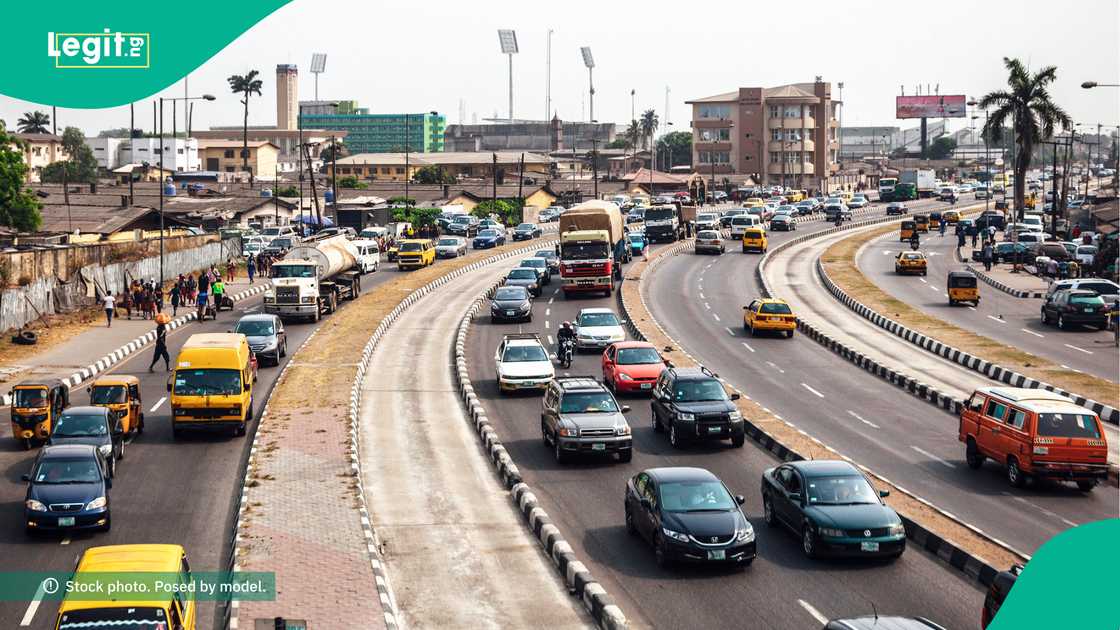Tinubu’s Adviser Dismisses Poverty Claims, Explains Why Nigerians Are Living a Better Life Now
- President Tinubu’s economic adviser Tope Fasua says Nigerians live better today than in 1960 despite current hardship
- Fasua dismissed the 2022 poverty report, claiming millions have been lifted out of poverty through reforms and infrastructure projects
- He argued that inflation had fallen to 24% from a peak of 34% and urged citizens to be patient as progress takes time
Legit.ng journalist Dave Ibemere has over a decade of experience in business journalism, with in-depth knowledge of the Nigerian economy, stocks, and general market trends.
President Bola Tinubu’s Special Adviser on Economic Affairs Tope Fasua said on Friday, September 3 that Nigerians are better off today than they were at independence in 1960 despite widespread economic hardship

Source: Getty Images
Speaking on Channels Television, Fasua said it was misleading to compare present realities with the early post-independence period, arguing that life for many citizens in 1960 was more difficult than often portrayed.
Fasua said:
“For those who try to compare Nigeria to 1960, in many ways we are living a better life now than used to be the case."
He noted that most Nigerians lived in rural areas with limited infrastructure at independence and only began experiencing urban poverty after migrating to cities such as Lagos, Ibadan and Kaduna.
Fasua said Tinubu’s government was prioritising long-term reforms and infrastructure development over cash handouts, in a bid to tackle both historic and current poverty, Vanguard reports.
He said:
“The current administration is saying we are not going to really be sharing money. We want to do something that takes us on a different trajectory … that prepares even our children and unborn children for a better life."

Source: Getty Images
Poverty report wrong
Fasua also dismissed the National Bureau of Statistics’ 2022 Multidimensional Poverty Index, which estimated that 133 million Nigerians were poor, describing the figure as outdated. Fasua claimed that investments in roads and other projects had already lifted 10 to 20 million people out of poverty.

Read also
Is Jonathan eligible to contest 2027 presidential election? Presidency, Lawyers, supporters speak
Citing the World Poverty Clock, he added that reforms had pulled five to six million Nigerians above the poverty line, while inflation has fallen to 24% from a peak of 34%.
Fasua urged patience with Tinubu’s economic policies, which have faced criticism amid high living costs, a weakening naira and rising unemployment.
He said.
“If you’re saying you think that you are poorer today than you were a few years ago, and that means nothing is being achieved, you are wrong … progress takes time"
LCCI says poverty persists
Earlier, Legit.ng report the Lagos Chamber of Commerce and Industry (LCCI) has shared its opinion about Nigeria's Gross Domestic Product (GDP) growth of 3.13% year-on-year in the first quarter of 2025.
According to the chamber, despite the growth reported, economic conditions continue to pose challenges for many Nigerians.
Speaking at their third press conference of 2025, Gabriel Idahosa, LCCI President, noted that while the GDP figures suggest economic improvement, significant portions of the population are grappling with poverty exacerbated by inflationary pressures.
According to Idahosa, the Consumer Price Index (CPI), though showing a declin, would have been as high as 33% without rebasing.
Proofreading by James Ojo, copy editor at Legit.ng.
Source: Legit.ng


